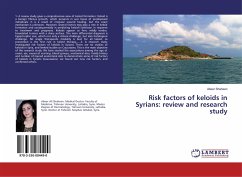
Risk Factors Contributing To The Problem Of Fascioliasis
Versandkostenfrei!
Versandfertig in 6-10 Tagen
46,99 €
inkl. MwSt.

PAYBACK Punkte
23 °P sammeln!
Fascioliasis has proved to be a great worldwide health Problem. It is an economically important disease of the domestic livestock and man. The disease is caused by trematodes of genus Fasciola, commonly referred as liver flukes. The two species most commonly implicated as the aetiological agents of fascioliasis are F. hepatica which has a worldwide distribution but predominates in temperate zones and F.gigantica which is found on most continents, primarily in tropical regions. Human infection is caused by the consumption of vegetables, fruits or edible plants to which the metacercariae (infect...
Fascioliasis has proved to be a great worldwide health Problem. It is an economically important disease of the domestic livestock and man. The disease is caused by trematodes of genus Fasciola, commonly referred as liver flukes. The two species most commonly implicated as the aetiological agents of fascioliasis are F. hepatica which has a worldwide distribution but predominates in temperate zones and F.gigantica which is found on most continents, primarily in tropical regions. Human infection is caused by the consumption of vegetables, fruits or edible plants to which the metacercariae (infective stage) are attached. Infection might also be acquired from contaminated drinking water or cooking utensils. The possible risk factors contributing to the problem of fascioliasis are explained in detail in this book. All efforts should be directed towards prevention and control of this problem.












